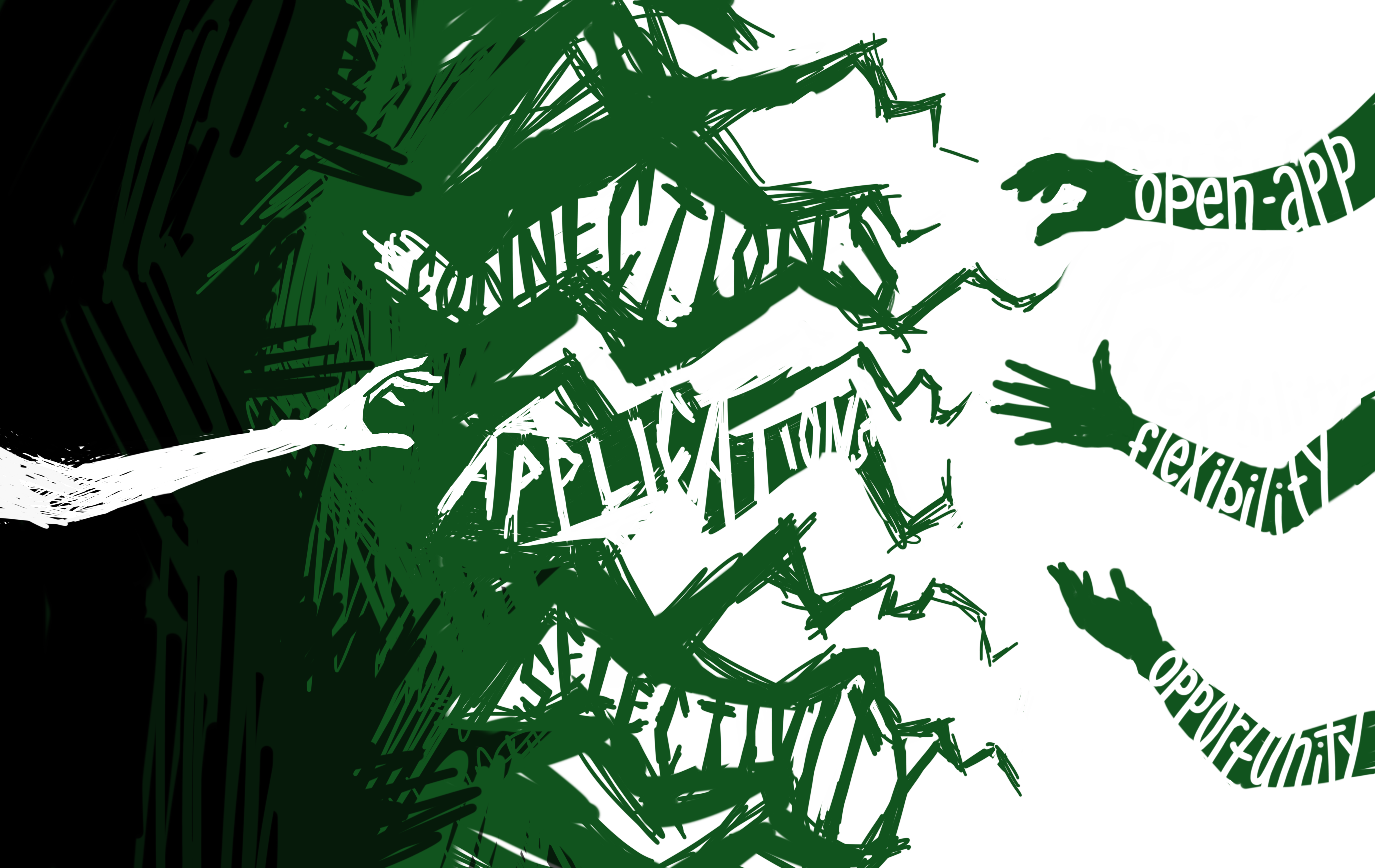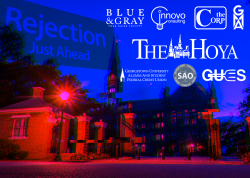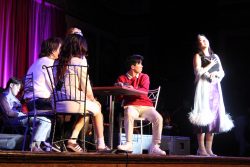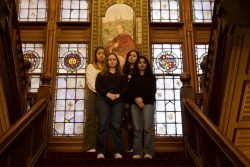Let’s do some word association. If I say pet, you would say dog or cat. And for green you may respond with tree. Red goes with apple, drink goes with iced matcha latte… the examples go on. And if I told you application, the usual connection would be to job. In our case, the word that normally came to the forefront of the mind was college. But in September, a new association arose for me, one that would confuse the average person yet resonate with many Hoyas.
As a doe-eyed freshman, I thought that college apps—and the miasma of extracurriculars, achievements, and past “experience”—were part of a bygone era. But after the haze of NSO and the first days of classes, I was hit with a new type of application: club apps. As a second round of club applications comes to a close, I want to look back at my experience with Georgetown’s club culture—one of dismay, frustration, and disillusionment—and center on the upsides of open-app student associations, which I hope will become a bigger part of Georgetown’s future.
I was aware of Georgetown’s club culture before I considered applying. I had read the College Advisor stories and the personal accounts of others. Every school had a multitude of similar communities, but what made Georgetown stick out was the pre-professional outlook that they leaned into. Many of the most selective clubs are meant for those with a journalist/diplomat/investor/law track in mind, paths that I wanted to explore.
This led me into the trap of exclusivity, thinking that the prestige that came with restrictive acceptances would put me in a better place for my future. I knew, subconsciously, how discriminative the clubs could be, but I ignored this aspect. The more cliquey the student organization was, the more I wanted to be part of it. I’m not proud of this mentality, but it’s what drove me toward the DC Reads, The Hoya, GCI, and Blue and Gray tables—among others—during CAB fair.
Net ID. Google Forms. 15-minute interview time-slots. The process was so reminiscent of what I had answered for schools that it felt like I was living the college application ordeal all over again. I wrote entire articles for some publications and took an hourlong editing test; I pulled up my extracurriculars list from Common App days; I spent hours drafting and editing and finalizing my responses.
The effort, commitment, and thought that went into this process made the rejections more crushing than they should have been. One philanthropic club canceled volunteering options on the only days I could attend after I had already poured over their questions. I received cursory emails informing me that despite my qualities and potential, I didn’t make the cut.
I had constantly been told that the best way to make friends was through these clubs, and in my frazzled new-student brain, I thought that with each rejection, I lost future friends I would never be able to make. The best way to find “my people” from the bunch—which is admittedly a small student population size relative to other schools—was with clubs. With this mindset (faulty, in retrospect), the selectiveness of these clubs became a social barrier that kept me from meeting people with the same interests.
Of course, selectiveness is sometimes necessary for clubs that actually require specific skills and aptitudes. I wouldn’t want GERMS personnel to forgo training and join “just for fun,” and members of academic councils or GUSA should be ensured to have the capabilities and necessary commitment to represent the campus community. In these ways, applicants who are truly interested in the organization can be differentiated from the ones who simply want another line in their résumé. However, for those who argue that limiting availability is needed to run clubs as an effective organization, I would point to the organizations whose open memberships don’t hinder their outreach, impact, and engagement. Anyone can join AASA and other cultural groups to help host fundraisers, speaker events, and raise awareness for diverse minority groups. Others like GUCD, Hoyas for Choice, and McDonough Women offer a wealth of information that is free and accessible. The Voice consistently covers everything from current events to student life without the need for applications, and the literary journal The Anthem lets students dive into their creative side without restricting the number of submitters.
Open-app orgs encourage more students to discover their interests in a pressure-free environment. The flexibility in these clubs offers students the opportunity to take risks. For various news magazines and literary journals, members aren’t confined to writing for one singular section and have the option to venture out of their comfort zone to discuss widely varying topics, from pop culture to sports. Participants listen to accomplished speakers, meet alumni through panels and information sessions, and obtain valuable resources regarding jobs, internships, and post-college opportunities. The same knowledge that closed-app clubs possess is shared, broadcasted, and attainable to all—without the barriers of applications and rounds of interviews.
Our current club culture sucks us into the notion that student associations will help us for our future, which gives unnecessary weight to the ones with a quota on applicant acceptances. Clubs then devolve into 250-word paragraphs that distract us from their very purpose—to explore, meet others, and delve into topics that truly interest us.
What quelled my anxieties were the clubs where only name and interest were required. I reminded myself that with over 400 student organizations to choose from, I shouldn’t pigeonhole myself into the ones that build up their prestige and worth over rejecting more people than they accept.
The club culture I love is the one without word requirements. Out of the clubs I’m a part of, it’s these ones where I’ve had the most fun, connecting with others and forging bonds with people from across the colleges and with vastly different majors. As yet another inevitable application season rolls past, I hope that more clubs follow in the path of an open-app system and end this unnecessarily grueling process. Maybe then, the word application will lose the weight we’ve attributed to it, and club culture will be associated with inclusiveness and community.




